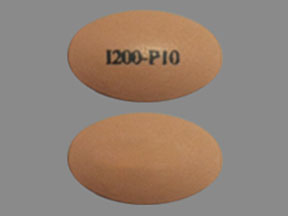Advil Congestion Relief Interactions
There are 582 drugs known to interact with Advil Congestion Relief (ibuprofen / phenylephrine), along with 15 disease interactions, and 3 alcohol/food interactions. Of the total drug interactions, 128 are major, 436 are moderate, and 18 are minor.
- View all 582 medications that may interact with Advil Congestion Relief
- View Advil Congestion Relief alcohol/food interactions (3)
- View Advil Congestion Relief disease interactions (15)
Most frequently checked interactions
View interaction reports for Advil Congestion Relief (ibuprofen / phenylephrine) and the medicines listed below.
- acetaminophen
- Advil (ibuprofen)
- Aleve (naproxen)
- Allegra (fexofenadine)
- alprazolam
- amoxicillin
- amoxicillin / clavulanate
- aspirin
- azithromycin
- baclofen
- Benadryl (diphenhydramine)
- Benadryl Allergy (diphenhydramine)
- benzonatate
- Claritin (loratadine)
- cyclobenzaprine
- docusate
- Flonase (fluticasone nasal)
- gabapentin
- ibuprofen
- loratadine
- meloxicam
- omeprazole
- ondansetron
- prednisone
- Singulair (montelukast)
- tramadol
- Tylenol (acetaminophen)
- Vitamin D3 (cholecalciferol)
- Zofran (ondansetron)
- Zyrtec (cetirizine)
Advil Congestion Relief alcohol/food interactions
There are 3 alcohol/food interactions with Advil Congestion Relief (ibuprofen / phenylephrine).
Advil Congestion Relief disease interactions
There are 15 disease interactions with Advil Congestion Relief (ibuprofen / phenylephrine) which include:
- asthma
- fluid retention
- GI toxicity
- rash
- renal toxicities
- thrombosis
- cardiovascular disease
- PKU
- anemia
- hepatotoxicity
- hyperkalemia
- platelet aggregation inhibition
- BPH
- diabetes
- glaucoma
More about Advil Congestion Relief (ibuprofen / phenylephrine)
- Compare alternatives
- Drug images
- Side effects
- Dosage information
- Drug class: upper respiratory combinations
Related treatment guides
Drug Interaction Classification
| Highly clinically significant. Avoid combinations; the risk of the interaction outweighs the benefit. | |
| Moderately clinically significant. Usually avoid combinations; use it only under special circumstances. | |
| Minimally clinically significant. Minimize risk; assess risk and consider an alternative drug, take steps to circumvent the interaction risk and/or institute a monitoring plan. | |
| No interaction information available. |
See also:
Further information
Always consult your healthcare provider to ensure the information displayed on this page applies to your personal circumstances.


